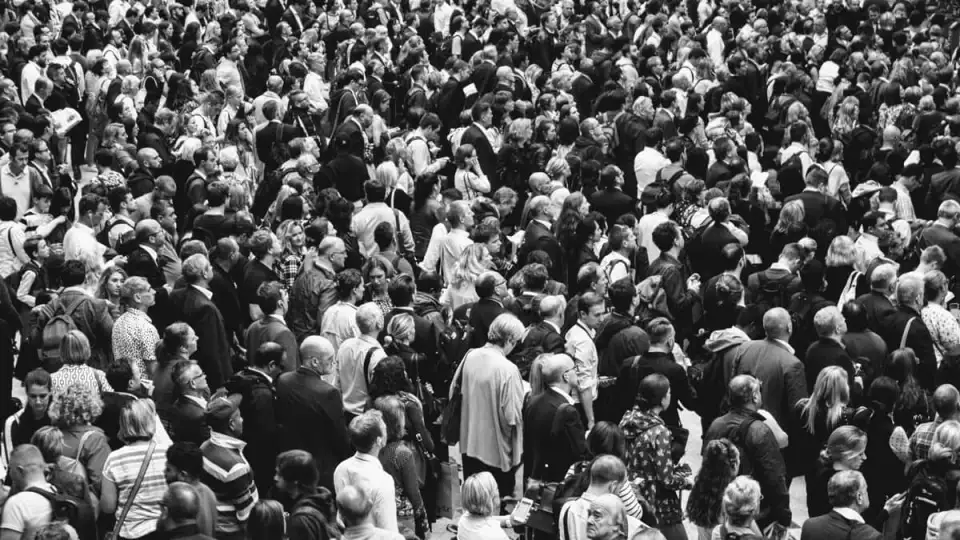
These are strange times: a world on the brink of irreversible change from the climate crisis, an administration who denies scientific facts and uses intuition to guide policy, and the world-wide spread of a coronavirus. While we all brace for what looks like a rough period of time from the health and economic fallout of Covid-19, there are some insights we can gain and apply to the work that we do to reverse climate change. It is really old news, but it reminds us about the significance of awareness and human health.
Over the past weeks we have seen societies and governments act very quickly to make human health the priority. When the choice between economic stability and even relatively small numbers of deaths presented itself, most rational governments chose human health and well-being. This choice exhibited in the Covid-19 crisis is the same existential choice that we have in reversing climate change: choosing human health and well-being at the immediate expense of maximizing profit.
The rapid change that has occurred in our culture since the beginning of the Covid-19 outbreak is astronomical. This tells us in no uncertain terms that when humans see a real threat to their health, people and governments CAN act very quickly. We’ve seen the conventional wisdom do an about face, from the prevailing attitude that this is nothing but another flu, to self-imposed social distancing, school closures, travel bans, and other advanced protective measures. This brings into sharp focus the fact that our messaging about climate change is not clear enough, something I have long suspected.
Our messaging has been abstract, and our words badly chosen. Global warming and climate change are terms that don’t accurately describe the threat. Talking about the planet is removed from impacts that will ultimately be highly personal. The climate-change movement has talked about the health of “the environment” and not our own health, which of course is another abstraction. Little of our messaging has been personal and about our own health and well-being.
For those of us working to reverse climate change, we have the ability to see the havoc that the warming climate will mean for us in terms of food scarcity, rising sea levels, destabilized eco-systems, and increased wildfires, just to name a few. Because this vision is in clear focus for us, we act appropriately. But for a large number of people, this vision is blurry, and— in their opinion— potentially overblown. They see environmentalists as over-reacting, fear mongering, out of touch, and threatening their lifestyle. Conflicting views of climate science appearing in the press have not helped. But just as we have seen the skeptics reverse their opinion about just how serious the Covid-19 virus is once they truly grasp the facts, I believe that people will act very quickly when the effects of climate change come into clear focus, even if they have not experienced them firsthand.
People can turn on a dime when it comes to their health and well-being which is exactly what we have learned in the past few weeks with Covid-19.
A large segment of the general population is unaware and uninformed about how the natural world works and our dependency on it. Many are isolated from it, have never had a garden, never experienced the natural landscape, and have no understanding of bees, ecosystems, pollution, how food gets to the grocery, or how climate change directly affects their lives. They are unable to connect the dots. They have been told that their lifestyle affects the planet’s warming but, again, the abstraction and the scale of the problem make one’s personal efforts seem meaningless. It’s as if the population needs a course on how we are dependent on clean water, air, and the natural world in general. We need to see how the polar bear’s demise may be a reflection of our own well-being. We need to connect the dots. People need to be educated and connected to the threat of the issue. We have just learned that when we see the threat we can react: businesses have been shuttered, schools closed, and social-distancing has become the practice of the land once the threat became clear. When awareness of the issue by the larger population is achieved, change happens rapidly. In one week’s time the concept of “flattening the curve” has achieved broad recognition. We have been educated about the spread of infectious disease in the past week, and it has influenced our actions! It is really important to realize that this is not strictly a panic response…it is not just fear based. These are sound and prudent measures we’ve taken, based on the evidence that has been presented, in order to protect ourselves.
I am not suggesting that fear is the solution. It definitely is not, because fear is paralyzing. But EDUCATION is certainly a solution. It is education that we need most in order to make effective change in the climate crisis. And it’s not simply education about the climate crisis, but education about how the world actually works. When people are given the facts that they need in order to protect their health we see that they can change very quickly. This is the great lesson of Covid-19. True, we have seen some panic, people hoarding food and supplies, people hoarding masks that are ineffective, and fear-reactions in the stock market sell-off. But most of the change we see is a response, not a reaction. It is not just coming from fear, it is coming from education and increased awareness.
Positive change often springs from adversity. So as we hunker down and prepare for this historic change in our community, let’s take comfort that we may actually be able to rebuild a world that is better educated, more aware, and fully invested in protecting its own health.
Photo courtesy of Rob Curran.